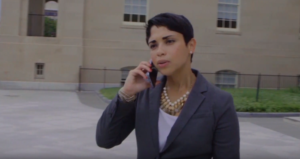Arlington Family Immigration Lawyer
 It is not unheard of for families to want to emigrate together. However, that process often involves multiple roles and applicants. If someone is already a permanent legal resident, they may then become of the application process of an immediate family member. Immediate relatives are considered spouses, unmarried children younger than 21 years, and parents of US. citizens.
It is not unheard of for families to want to emigrate together. However, that process often involves multiple roles and applicants. If someone is already a permanent legal resident, they may then become of the application process of an immediate family member. Immediate relatives are considered spouses, unmarried children younger than 21 years, and parents of US. citizens.
An Arlington family immigration lawyer knows that this process can face specific obstacles that could prevent permanent visa status. Previous immigration violations (unlawful entry, fraud, etc.) and an extensive criminal history will prevent adjustment. Therefore, speaking with a skilled immigration attorney could help you fight the risks and violations you may be facing.
Application for Immediate Relative Permanent Resident Status
If an immediate relative of a US citizen is present in the country, the citizen could file for Form I-130, Petition for Alien Relative. If the immediate relative is present after being admitted or parole then the immediate relative can file for adjustment to lawful permanent resident status by filing Form I-485, Application to Register Permanent Residence or Adjust Status.
If the immediate relative is abroad then the US citizen files Form I-130, Petition for Alien Relative. After USCIS approves the I-130, the immediate relative will have to file with the State Department Form DS-260, Immigrant Visa Application. The immediate relative will then be interviewed at a U.S. Embassy or Consulate abroad.
Cases of Visitors That Want to Stay
If an immediate relative decides to stay after a lawful entry, they are eligible to file Form I-485 with the I-130 filed by the US. citizen. However, the decision to remain in the U.S. had to have been formulated after entry because USCIS can allege that the immediate relative committed immigration fraud by entering the US. with the intent to stay.
Role of the Applicant and their Relative in the Visa Application Process
In order to legalize a family member’s stay, the person who will be petitioning needs to either be a citizen or permanent resident. The intending immigrant will have to be an immediate relative of the US. citizen (spouse, child under 21, or parent) who was lawfully admitted. If the intending immigrant is related to a lawful permanent resident then the permanent resident files Form I -130, Petition for Alien Relative and once the priority date becomes current then the intending immigrant can adjust provided that the individual has maintained lawful status.
Expected Duration of the Application Process
USCIS posts processing times are posted at www.uscis.gov for Form I-130 and the concurrent filing of Form I-130 and I-485. It can take many months for an application to be adjudicated. If an immediate relative is abroad then it may take a bit longer than an immediate relative present in the US. because they will have to wait until an interview is scheduled at the US. Embassy or Consulate abroad.
What is a Conditional Permanent Resident Visa?
Conditional permanent residence is US residence for two years instead of ten. A conditional residence is granted to a spouse of US citizen who has been married to the U.S. citizen for less than two years. In order to remove conditions, within 90 days before the conditional residence is set to expire the conditional resident submits, Form I-751 with evidence that the marriage to the U.S. citizen continues or was entered in good faith and has been terminated due to divorce or death, or the conditional resident was abused or would suffer extreme hardship.
Common Mistakes that Lead to Immediate Relative Visa Denial
Insufficient evidence of the relationship between the petitioner and beneficiary, past immigration violations, and criminal violations will prevent the issuance of an immigrant visa to an immediate relative or fiance(e). Mistakes made by applicants include failing to anticipate that a waiver will be required if there are past immigration and criminal violations; failing to provide sufficient evidence of the relationship between the petitioner and beneficiary; and not understanding that the applicant must have entered lawfully to be able to adjust within the US.
Steps to Take When Seeking Visa Approval
As a Arlington family immigration lawyer knows, to ensure that an Immigrant Visa will not be denied requires that the information in the application be accurate, that the applicant bring the necessary documents to the interview. This will help to demonstrate the relationship between the applicant and the petitioner, and that the intending immigrant file a waiver if there are past immigration and criminal violations. Once a family member’s application is approved, what happens?
When the I-130 is approved and the beneficiary is in the US they are eligible to apply for adjustment by filing Form I-485 (or should have applied at the same time as the I-130). If the intending immigrant is abroad, after the I-130 is approved, the individual submits form DS-260, Immigrant Visa application, an interview is held, and if approved the beneficiary immigrates.
Likelihood of Non-Immediate Family Members Remaining in the US
Non-immediate family members fall under the family preference category and will have to wait for the I-130 priority date to become current before filing for adjustment by filing Form I-485. The non-immediate family member must maintain lawful status in order to be eligible to adjust within the US.
If the non-immediate family member fails to maintain his or her status, then that person will have to consular process. However, consular processing may lead to the person being found inadmissible for being unlawfully present in the US. Inadmissibility will require a waiver, so before departing for consular processing a non-immediate family member should seek the advice of an Arlington family immigration lawyer.
